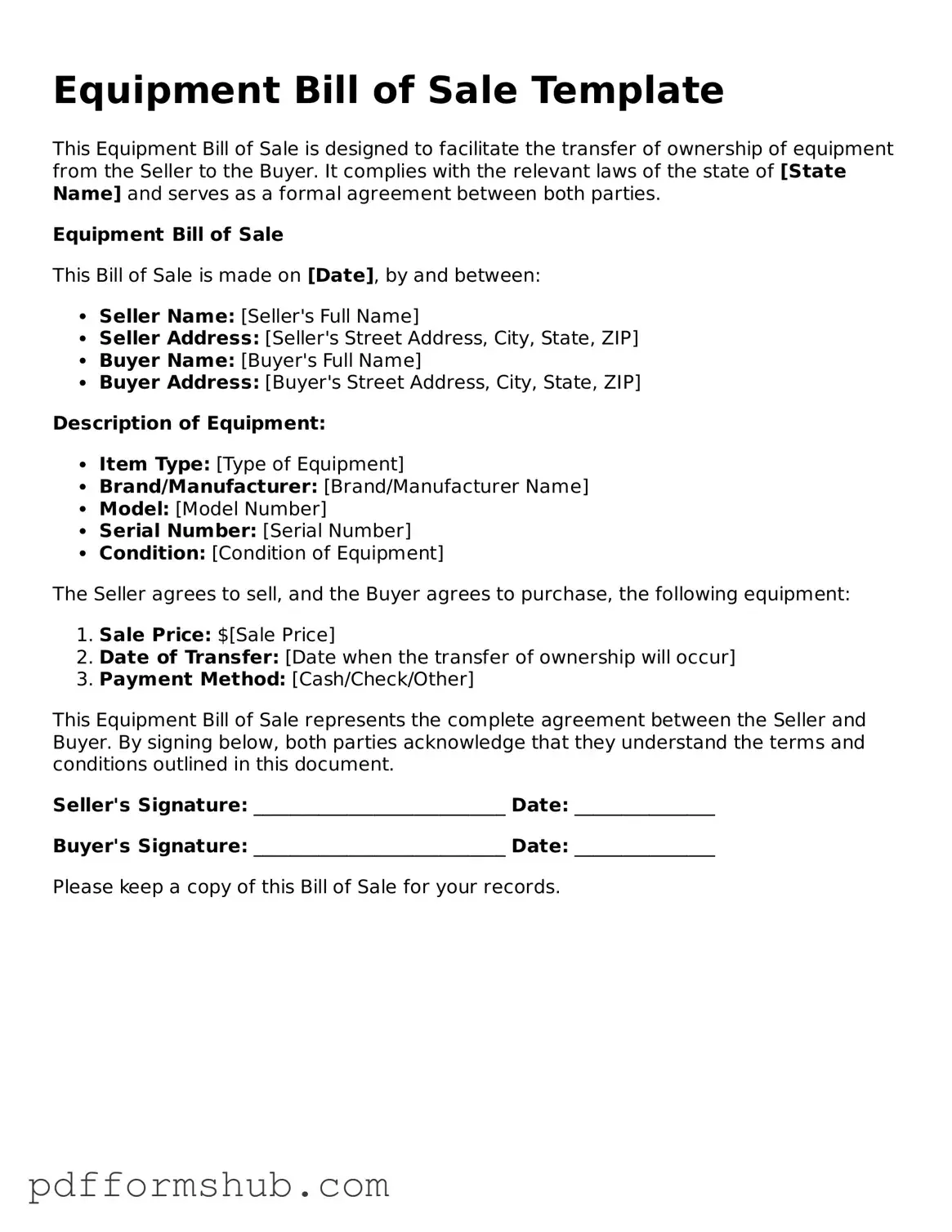Valid Equipment Bill of Sale Form
An Equipment Bill of Sale form is a legal document that serves as a record of the transfer of ownership of equipment from a seller to a buyer. This form outlines key details such as the description of the equipment, the purchase price, and the terms of the sale. Completing this form is essential for both parties to ensure a clear understanding of the transaction and to protect their respective interests.
To get started on your Equipment Bill of Sale, click the button below to fill out the form.
Customize Form

Valid Equipment Bill of Sale Form
Customize Form

Customize Form
or
Free PDF Form
Short deadline? Complete this form now
Complete Equipment Bill of Sale online without printing hassles.